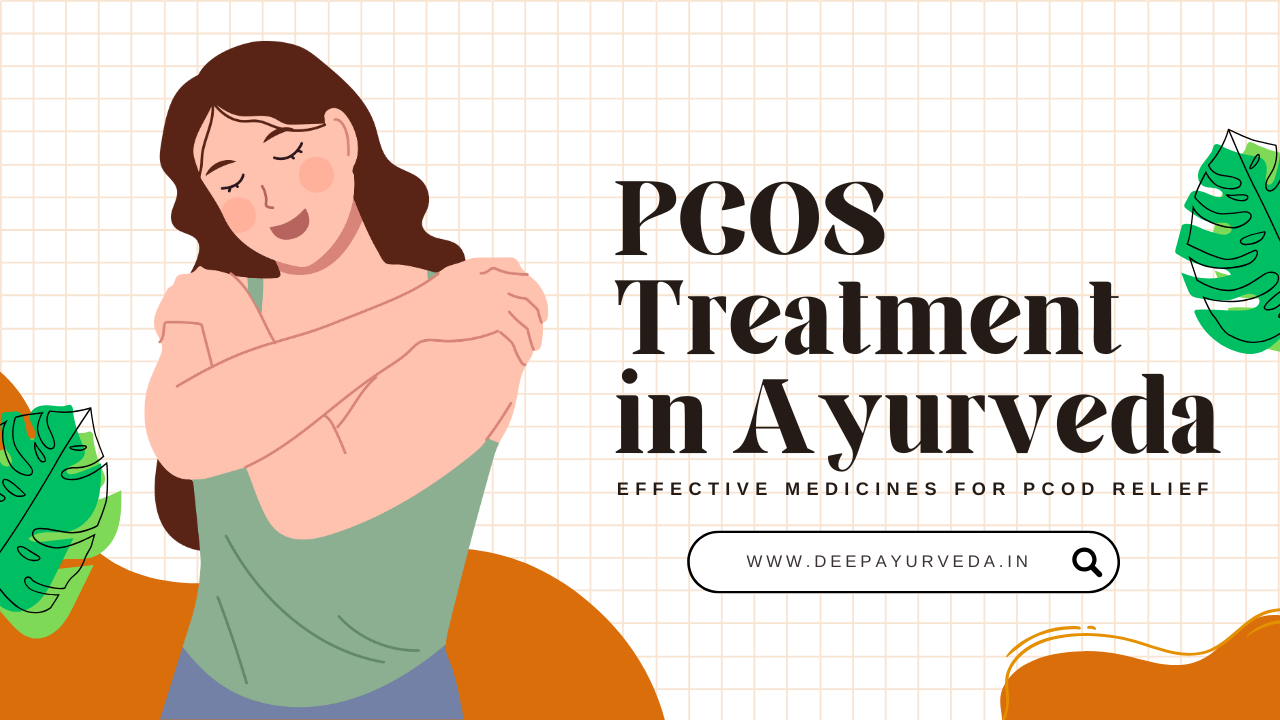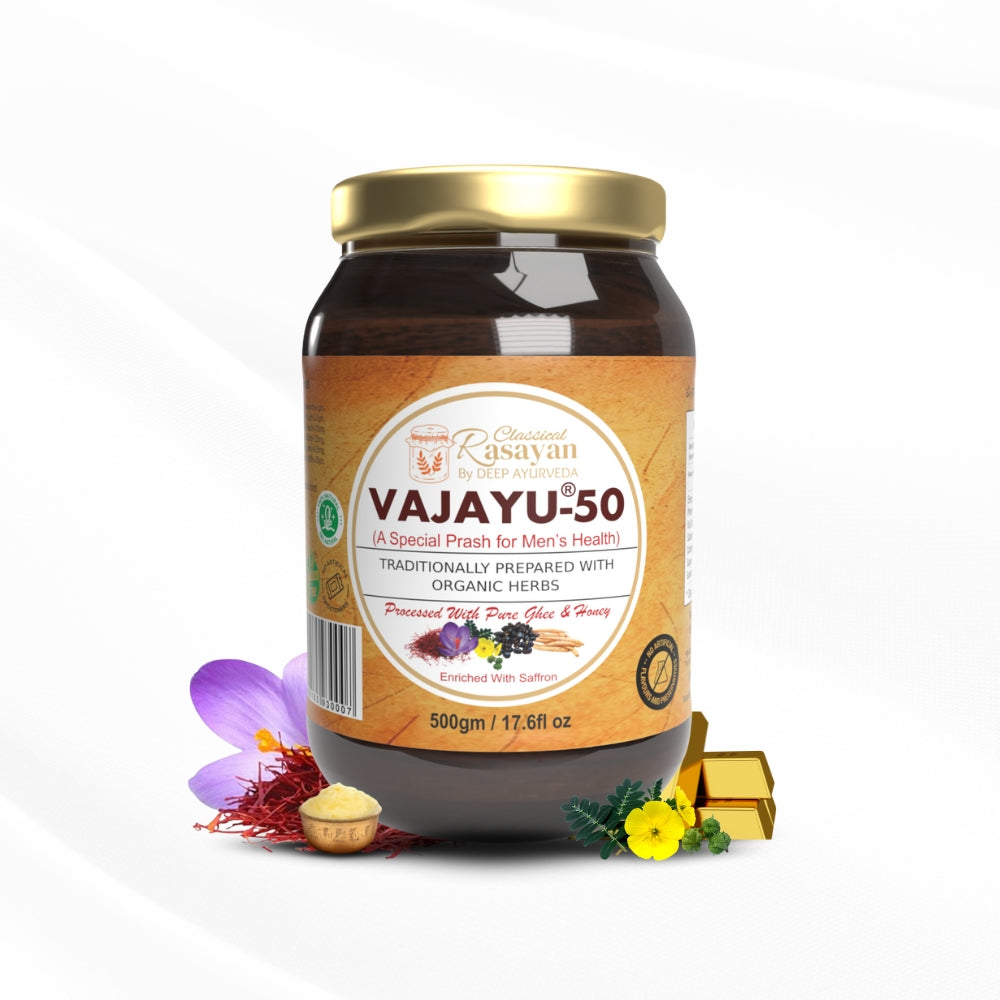News
Kumkumadi Face Cream: Benefits, Uses & Why It’s a Must-Have in Your Skincare Routine
Kumkumadi Face Cream is a luxurious Ayurvedic blend of saffron, sandalwood, and herbs that helps brighten skin, reduce pigmentation, fight acne, and slow signs of aging—making it a must-have for glowing, healthy skin.
Read moreNews
How to Increase Bone Density & Build Stronger Bones Naturally
Learn how to increase bone density naturally with Ayurveda, diet, and exercise. Discover how long it takes to build bone density and prevent age-related bone loss.
Read morePCOS Treatment in Ayurveda: Effective Medicines for PCOD Relief
PCOS treatment in Ayurveda offers a holistic approach with effective Ayurvedic medicine for PCOD. Restore hormonal balance and improve digestion naturally.
Read moreCan Shilajit Help With Weight Loss? Ayurvedic Benefits Explained
Shilajit is an effective Ayurvedic solution for weight loss. Boost metabolism, regulate appetite, and enhance detoxification with Shilajit for weight management.
Read moreDronpushpi (Leucas cephalotes): The Forgotten Ayurvedic Powerhouse for Fever, Respiratory & Skin Health
Dronpushpi (Leucas cephalotes) is an Ayurvedic herb used for fever, cough, skin issues, and digestion. Discover its benefits, uses & formulations.
Read moreUshir (Vetiveria zizanioides): The Cooling Herb of Ayurveda
Ushir (Vetiver) is a cooling Ayurvedic herb known for calming the mind, detoxifying the body, and soothing skin, digestion, and urinary issues naturally.
Read moreGastrointestinal (GIT) Disorders: A Holistic Ayurvedic & Modern Guide to Better Digestive Health
Discover causes, symptoms, and Ayurvedic + modern treatments for GIT issues like acidity, constipation, IBS & more with Deep Ayurveda's herbal remedies.
Read moreKidney Stones: An Integrative Approach with Modern and Ayurvedic Wisdom
Discover Ayurvedic & modern solutions for kidney stones. Prevent, manage & detox naturally with Deep Ayurveda’s Urocare, Renfit & Punarnava-based remedies.
Read moreSciatica: A Modern and Ayurvedic Perspective for Lasting Relief
Discover Ayurvedic treatments and natural remedies for sciatica. Learn how to relieve sciatic nerve pain holistically with herbs, therapies, and lifestyle changes.
Read moreHow to Control Food Cravings Naturally with Ayurveda
Learn how to control food cravings naturally with Ayurvedic tips, mindful eating, and herbal support. Discover how to stop eating unhealthy food without guilt.
Read moreBest Ayurvedic Detox in Ayurveda
Best Ayurvedic Detox in Ayurveda: Rejuvenate Your Body Naturally Looking for a natural way to reset your body, mind, and soul? Ayurvedic Body Detox is the ancient solution that has stood the test of time. Rooted in the traditional science of Ayurveda, detoxification or "Shodhana" plays a vital role in maintaining overall health, vitality, and longevity. If you’re searching for Body Detox in Panchkarma, or wondering where to find the Best Ayurvedic Clinic in Mohali for Body Detox, this guide is your ultimate resource. What is Ayurvedic Body Detox? Ayurvedic Body Detox is not just about physical cleansing—it’s about eliminating toxins (Ama) that accumulate due to improper diet, lifestyle, stress, and environmental factors. Ayurveda believes that detoxification restores balance to the doshas (Vata, Pitta, Kapha) and enhances immunity, digestion, and mental clarity. The Role of Panchkarma in Body Detox What is Panchkarma? Panchkarma is the crown jewel of Ayurvedic detoxification. It is a five-fold therapeutic process that deeply cleanses the body and mind through a series of personalized treatments. Key Panchkarma Therapies for Detox: Vamana (Emesis Therapy) – Controlled vomiting to eliminate excess Kapha. Virechana (Purgation Therapy) – Removes toxins through cleansing of the intestines. Basti (Medicated Enema) – Detoxifies the colon and balances Vata dosha. Nasya (Nasal Therapy) – Clears toxins from the head and neck region. Raktamokshana (Bloodletting) – Purifies the blood (optional, based on need). These therapies are tailored after a thorough Ayurvedic consultation and constitution analysis (Prakriti Pariksha). Why Choose Ayurvedic Detox? Boosts metabolism & digestion Enhances immunity Improves skin & hair health Reduces stress and mental fatigue Aids in weight management Promotes better sleep and energy Body Cleansing in Mohali: Where to Go? If you are in Mohali or nearby, you're in luck. You can experience Body Cleansing in Mohali at one of the most authentic and trusted wellness centers—Deep Ayurveda. Best Ayurvedic Clinic in Mohali for Body Detox Deep Ayurveda, founded by renowned Ayurvedic doctor Dr. Baldeep Kour, offers comprehensive and customized Panchkarma Detox programs in Mohali. Known for its pure herbal formulations, experienced Ayurvedic doctors, and state-of-the-art wellness setup, it is widely regarded as the Best Ayurvedic Clinic in Mohali for Body Detox. At Deep Ayurveda, detox is not just a therapy—it’s a lifestyle transformation. Each detox journey is personalized based on your body type, existing health concerns, and long-term wellness goals. Final Words Embarking on an Ayurvedic Body Detox is one of the most powerful steps you can take toward holistic healing. Through the time-tested methods of Body Detox in Panchkarma, you can deeply cleanse your system, restore inner balance, and revitalize both body and mind. If you're exploring options for Body Cleansing in Mohali, place your trust in the experienced hands at Deep Ayurveda—widely regarded as the Best Ayurvedic Clinic in Mohali for Body Detox. Experience authentic Ayurveda, personalized care, and a journey toward long-lasting wellness. Ready to Begin Your Detox Journey?Book your consultation with Deep Ayurveda today and experience the ancient healing of Panchkarma in its purest form.
Read moreArthritis and Ayurveda: A Holistic Approach to Joint Health
Natural Ayurvedic solution for arthritis with herbs like Ashwagandha & Guggulu. Relieves pain, improves mobility & balances Vata for joint wellness.
Read moreIBS (Irritable Bowel Syndrome): An Integrated Approach from Modern and Ayurvedic Perspectives
Discover an Ayurvedic & modern approach to IBS. Learn causes, symptoms, remedies & Deep Ayurveda’s natural treatment for lasting gut health.
Read more














